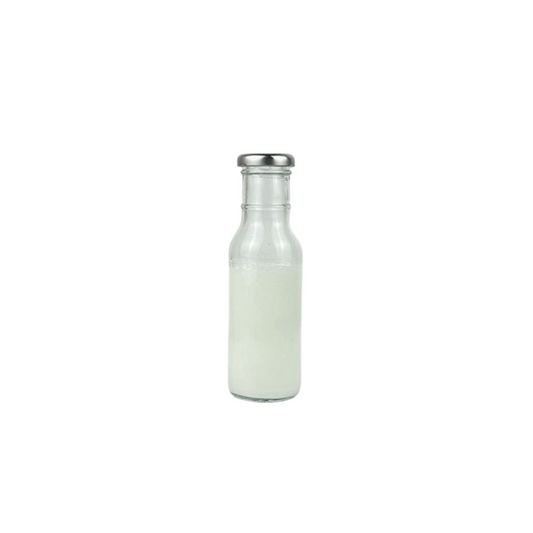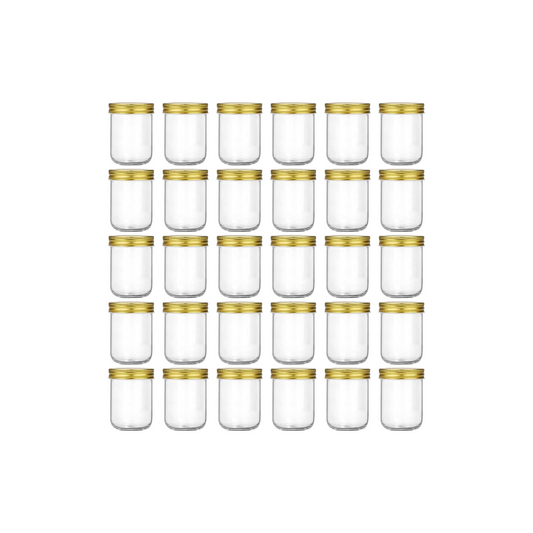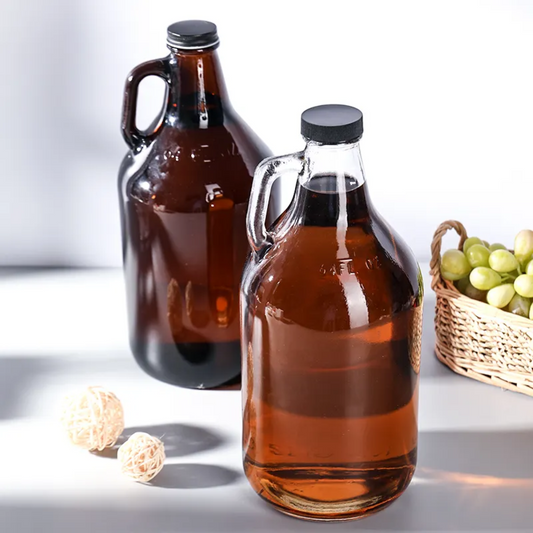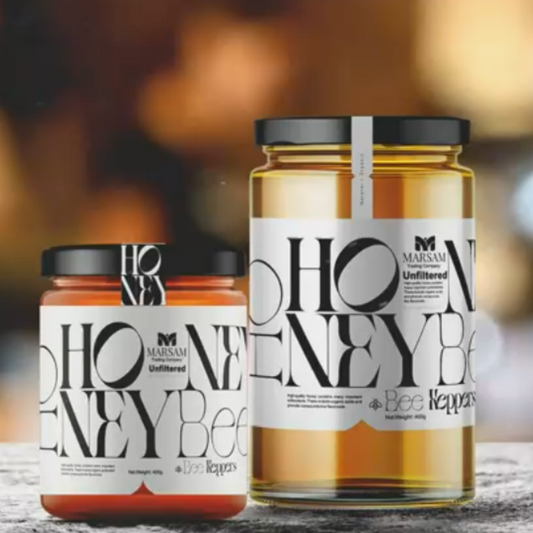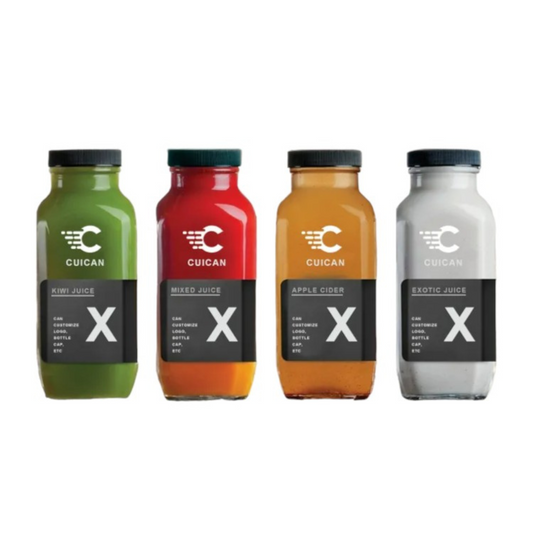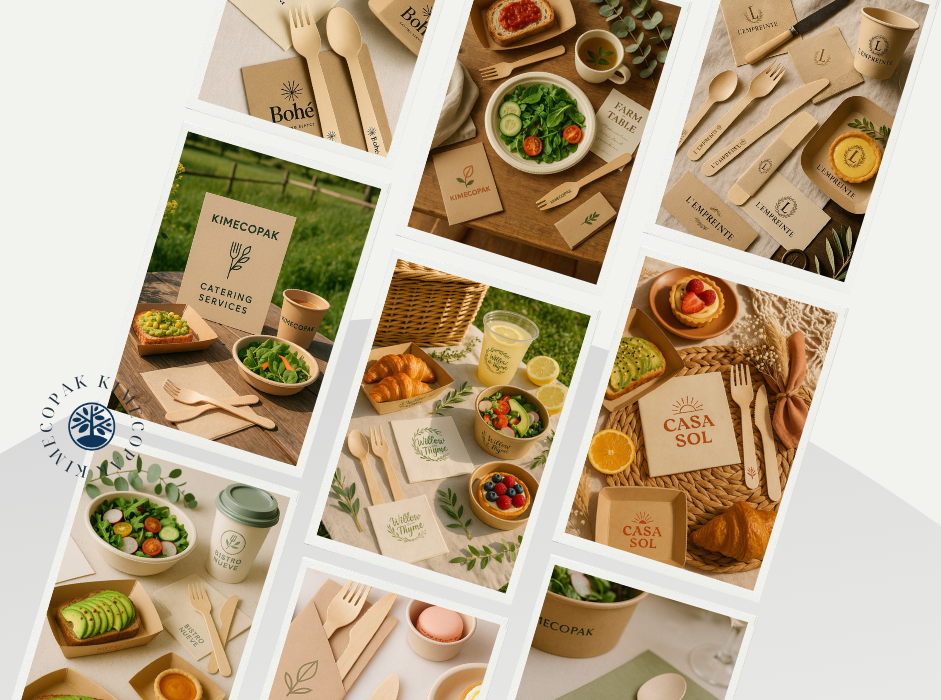-
Reusable Clear Glass Sauce Bottles 250ml & 350ml | Perfect for Sauces, Condiments
Regular price $8,745.05Regular priceUnit price per -
Standard Glass Canning Jars | 8 Oz | For Pickles, Vegetables or Sauces | Bulk Canada
Regular price $4,624.00Regular priceUnit price per -
Reusable Glass Jug with Lid | 1/2 Gallon | For Juices, Kombucha, Ciders, Beers | Bulk Canada
Regular price $22.75Regular priceUnit price per -
Glass Round Jars With Lid & Paper Gasket | 6, 8, 12, 16, 24, 32 Oz | Wholesale & Bulk Canada
Regular price $4,626.00Regular priceUnit price per -
French Square Glass Jars | 2, 8, 12, 16 Oz | Wide Mouth, With Lid & Paper Gasket | For Juice, Smoothies, Herbal Drink, Kombucha
Regular price $3,027.00Regular priceUnit price per
Glass packaging has long been a trusted choice for preserving and storing various types of food items. However, do you know why people should use glass containers instead of plastic ones? How many types of glass packaging? Let's dive in and uncover the world of wholesale glass packaging at KimEcopak!
What Food Is Suitable for Glass Packaging?
Glass packaging is versatile and can be used to store a wide range of food items. Here are some examples of food products that are suitable for glass packaging:
- Jams: The thick glass walls of jars help maintain the freshness and flavor of jams and preserves, ensuring they last longer.
- Sauces and dressings: Glass bottles prevent air and light from deteriorating the quality and taste of sauces and dressings.
- Spices and herbs: Glass containers with airtight lids preserve the aromatic qualities of spices and herbs, keeping them fresh for an extended period.
- Beverages: Glass bottles are often used for storing juices, wines, and other beverages because they do not interact with the contents, preserving their taste and quality.
- Sweets and confectioneries: Glass jars and containers showcase colorful candies and confectioneries, making them visually appealing to consumers.
Glass packaging is not limited to these examples alone. Its versatility allows it to be used for various other food products, making it a popular choice for wholesalers.
Types of Glass Packaging for Food
Here are some common glass packaging:
Glass Bottle
Glass bottles are a classic choice for packaging various food and beverage products. They come in various shapes and sizes, ranging from small vials to large wine bottles. The versatility of glass bottles makes them ideal for packaging everything from sauces and oils to carbonated beverages and spirits. The presence of caps ensures a secure seal to prevent leaks and maintain freshness.
Glass Jug
For larger quantities of liquid food products like juices, ciders, and craft beers, glass jugs are a preferred choice. They offer a convenient handle for easy pouring and come with airtight caps to ensure no contamination or spills. Glass jugs not only keep the contents fresh for longer but also enhance the aesthetic appeal of the product.
Glass Jar
Glass jars are perfect for packaging juice, smoothies, herbal drinks, kombucha, and vegan milk wholesale/retail supplies.
Benefits of Glass Food Packaging
Glass packaging offers numerous benefits that make it a preferred choice for wholesalers and consumers alike. Here are some advantages of using glass for food packaging:
- Environmental friendliness: Glass is 100% recyclable and can be reused multiple times without losing its quality. Choosing glass packaging helps reduce reliance on single-use plastics and contributes to a more sustainable future.
- Preserve freshness and flavor: Glass containers provide an excellent barrier against air, moisture, and light, which can degrade the quality and taste of food products.
- Chemical-free and non-reactive: Unlike some other packaging materials, glass is inert and does not interact with the food stored inside. This ensures that the taste, aroma, and quality of the food remain unaffected by the packaging material itself.
- Visual appeal: Glass packaging allows consumers to see the product before purchasing, which is especially important for aesthetic or visually appealing food items. The transparency of glass enhances the overall experience and can even influence buying decisions.
- Versatility: Glass packaging comes in various shapes and sizes, allowing for flexibility and customization according to specific product requirements. This versatility makes glass suitable for packaging a wide range of food items, from liquids to solids.
Glass Packaging Suppliers - Free Logo - Factory Price
KimEcopak is a glass packaging supplier in Canada. When ordering glass packaging in bulk, you can receive a special offer price, and save significant costs for your business.
Besides that when you choose custom logo glass jars at KimEcopak, you will have the opportunity to receive special offers such as:
- Free logo label (1 design) for all orders>10,000 pcs
- Mixing Sizes available with MOQ 1x 40ft cont' with a special offer. Unit Pricing will depend on the Final MOQ of each size
Frequently Asked Question
Is Glass Packaging Better than Plastic?
The debate between glass and plastic packaging is an ongoing one. Both materials have their advantages and disadvantages, and the choice ultimately depends on various factors such as the type of food being packaged, sustainability goals, and consumer preferences. However, there are several reasons why glass packaging is often considered a better option:
- Environmental impact: Glass is more environmentally friendly than plastic. It is recyclable, has a lower carbon footprint, and does not contribute to marine pollution as extensively as plastic does.
- Preservation of taste and quality: Glass containers prevent the transfer of odors or flavors, ensuring that the taste and quality of the food remain intact. This is not always the case with plastic packaging, which may interact with the contents and affect their flavor.
- Chemical safety: Glass is a non-reactive material and does not release harmful chemicals into the food. On the other hand, some plastic containers may contain chemicals like BPA, which can potentially leach into the food and pose health risks.
- Reusability: Glass can be reused multiple times without compromising its quality, whereas plastic containers may degrade over time and need to be replaced more frequently.
- Aesthetic appeal: Glass packaging is often perceived as more premium and visually appealing compared to plastic. The transparent nature of glass allows consumers to see the product, enhancing the overall experience.
Why Is A Glass Jar Preferred For Packaging Honey?
The glass bottles/jars that have gas and moisture barriers will prevent any contact between air, moisture, and liquid with packed honey. Therefore, honey in a glass jar/bottle is a great choice.
Is Glass Packaging Sustainable?
Glass packaging is sustainable because it is 100% endlessly recyclable.
Types of Glass Used in the Production of Glass Bottles?
Type I: Borosilicate Glass
Type I glass containers contain silica, boric oxide, sodium oxide, and aluminum oxide. It is a suitable option for packing alkali materials and acids and is considered food-grade safe.
Type II: Treated Soda Lime Glass
Type II glass containers are suitable for liquids and acids. It is similar in composition to Type III glass, is easier to mold than Type I glass, and is food-grade safe.
Type III: Soda Lime Glass
Type III glass is untreated soda lime glass offering average chemical resistance. It is made up of silica and various oxides, including sodium, calcium, aluminum, magnesium, and potassium. Type III is the most common glass type in use and is compatible with most items such as food, beverages, and common chemicals - and, it is food-grade safe.
Conclusion
Glass packaging provides a versatile and reliable solution for preserving and storing various food products. From preserving freshness and flavor to being environmentally friendly and visually appealing, glass packaging checks all the boxes.
TRANSFORM YOUR CUSTOMERS INTO A WALKING BILLBOARD FOR YOUR BIZ
+ RECEIVE $300 OFF FOR 1st CUSTOM LOGO/WHOLESALE ORDER(*)
Share with our experts on your Products, Sizes, and Quantities, and let's cook up a tailored solution that screams YOUR style.
Your vision, our expertise – let's make it pop! Talk to us!



